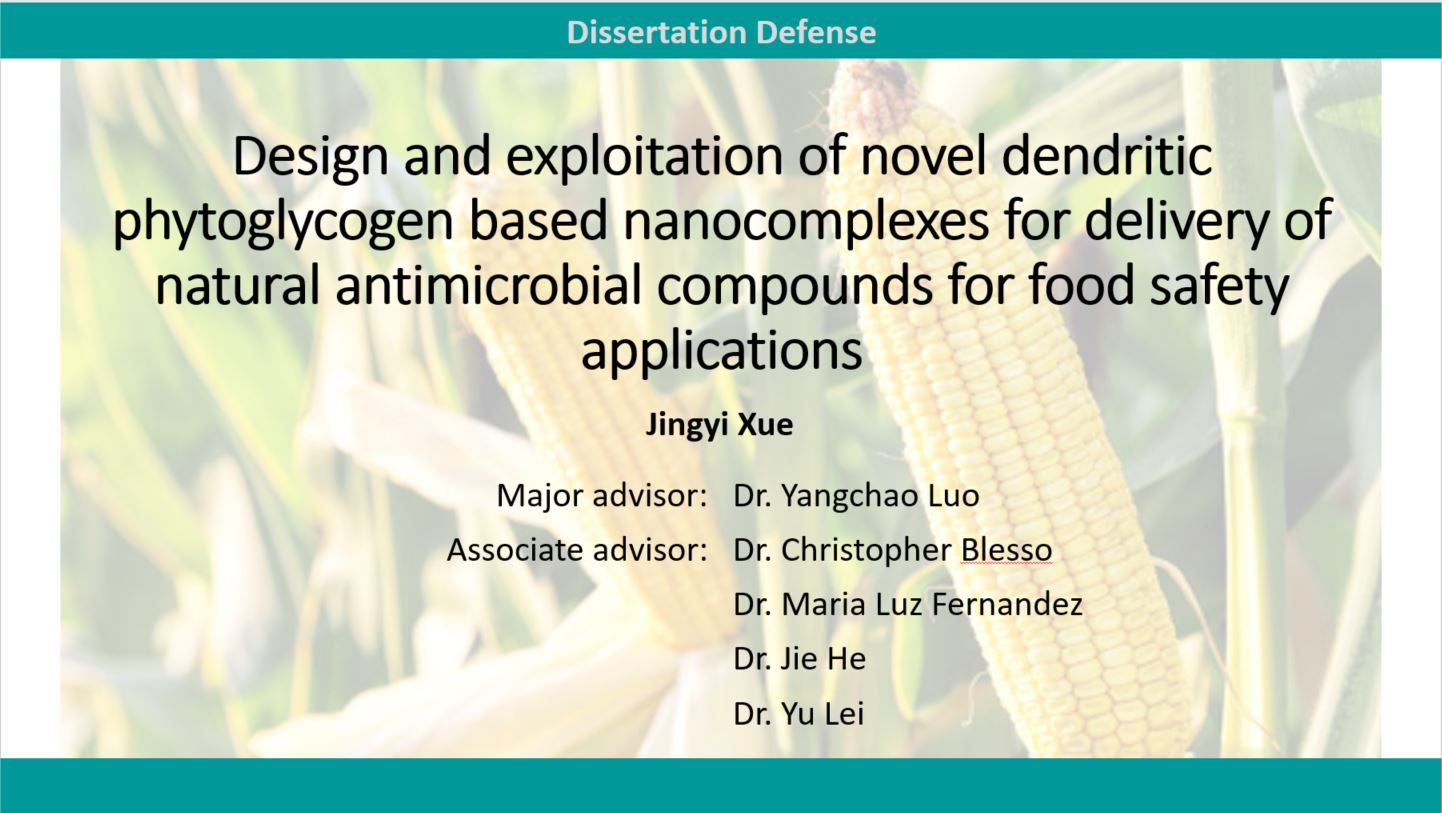Congratulations to Jingyi Xue on successfully defending her doctoral dissertation, titled "Design and exploitation of novel dendritic phytoglycogen based nanocomplexes for delivery of natural antimicrobial compounds for food safety applications" on 8/4/2021. Congratulations, Dr. Xue!
Jingyi obtained her bachelor degree from East China University of Science and Technology in Bioscience in 2013. In 2015, she joined our lab as a master student and later switched to PhD program in 2017. Till now, she has published 6 papers as first author, and more than 10 papers as a co-author. Jingyi actively participated in a number of workshops and conference sessions throughout her academic career. Notably, in 2020, Jingyi was the recipient of Hamilton D. Eaton Award in the Department of Nutritional Sciences, and CAHNR Graduate Student Research and Creativity Award in the college.
Furthermore, Jingyi, as lab manager, has been working tirelessly to provide quality laboratory service and always willing to share her experience and knowledge for mentoring others, including junior graduate students and senior undergraduate students. She also took the lead to set up the microbiology lab for food safety research.
Abstract
Phytoglycogen (PG) is a naturally occurring glycogen-like water soluble carbohydrate with nanoscale spherical structure existing in the endosperm of sugary mutant grains. While its unique dendritic nanostructures offer promising structural features to harbor bioactive compounds, the strong hydrophilicity limits its applications for encapsulating lipophilic molecules. In this project, two strategies were applied on this dendritic polysaccharide to alter its physicochemical properties, enhance its encapsulation efficacy, and expand its applications in the fields of food safety and quantity management. First of all, the extracted PG was modified with various hydrophobic chains through gentle esterification and the obtained conjugates, which possessed different level of hydrophobicity, were exploited as carrier for bioactive compounds (curcumin) via a pH- driven method without the utilization of organic solvent or synthetic chemicals. Secondly, the hydrophobic PG nanoparticles were cooperated with the hydrolysate of zein, a prolamin extracted from corn, via a pH- and heating induced process with simultaneous deposition of lipophilic bioactive compounds (eugenol and thymol) on/inside of the dendritic structure without compromising their beneficial functionalities. The major objectives of this dissertation were to 1) develop a simple and eco-friendly extraction method; 2) modify PG with hydrophobic chains and compare the efficiency of different encapsulation methods; 3) design dendritic nanocomplexes via supramolecular interactions between modified PG and other food biopolymers for encapsulation of natural antimicrobial compounds; 4) explore the practical applications of obtained nanocomplexes in the preservation of fresh produce by inhibiting bacterial growth and biofilm formation. To sum up, the as-prepared nanocomplexes demonstrate superior physicochemical properties and functionalities for delivery of antimicrobial compounds with potent bactericidal activities, opening up new avenues for nanotechnology-enabled approaches to ensure food safety and quality.
